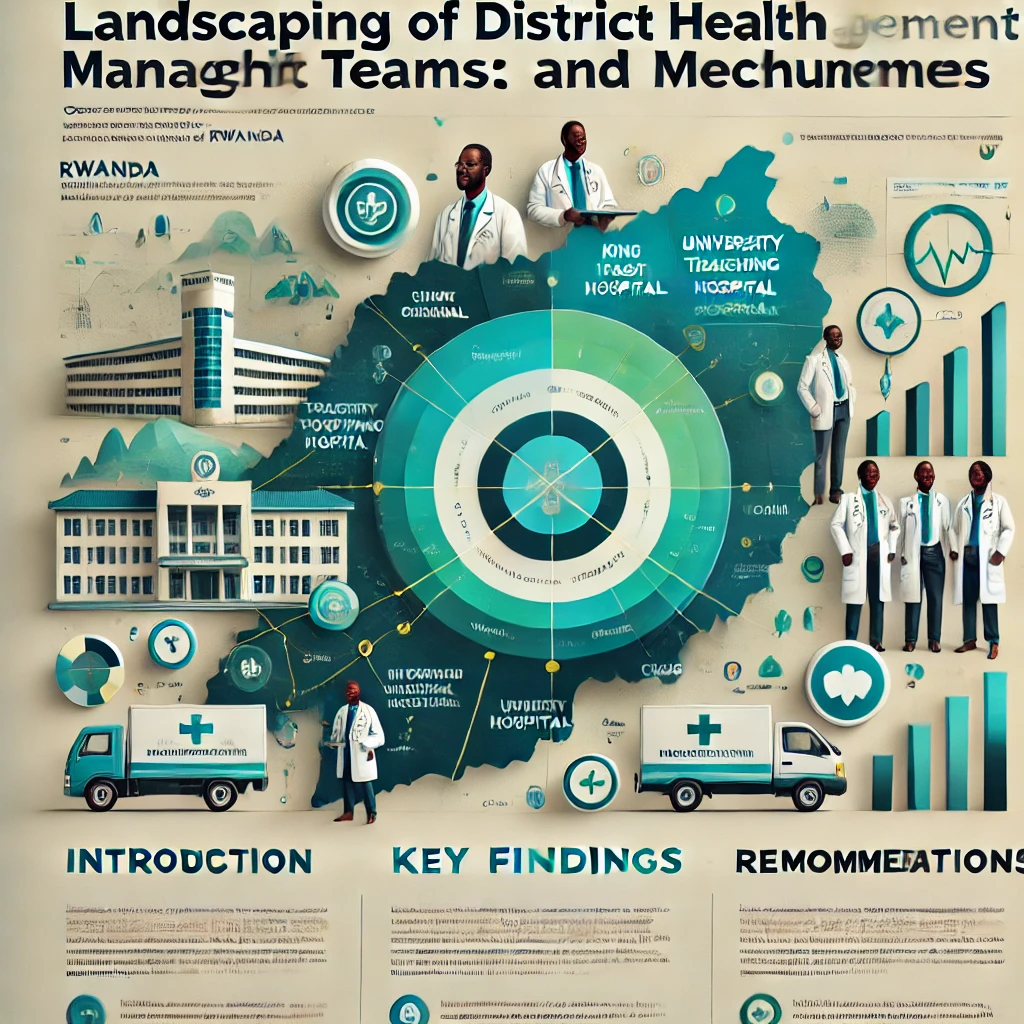The Landscaping of District Health Management Teams (DHMT): Governance and Mechanisms report evaluates the functionality and performance of DHMTs in Rwanda, established to strengthen district-level health governance and service delivery. DHMTs play a pivotal role in coordinating health activities, implementing policies, and addressing local health needs. Findings reveal that while the structure promotes collaboration among diverse stakeholders such as district authorities, hospital directors, and community health workers, challenges persist. Key issues include variability in committee composition, inconsistent adherence to guidelines, lack of dedicated staff, and insufficient legal and procedural clarity. Resource constraints, particularly the absence of dedicated budgets, limit the DHMTs’ ability to implement decisions effectively. Additionally, while there is strong collaboration with other health committees, overlapping responsibilities, communication gaps, and insufficient follow-up mechanisms hinder optimal performance.
To address these challenges, the report recommends strengthening governance frameworks, enhancing capacity building through training on evidence-based decision-making, and securing dedicated budgets for DHMT operations. Improving collaboration with stakeholders, such as the Joint Action Development Forum (JADF), and developing standardized monitoring and evaluation tools are also crucial. Facilitating cross-district learning through annual inter-district meetings and promoting partnerships to diversify funding sources will further enhance DHMTs’ effectiveness. These measures aim to build on the progress made and ensure that DHMTs can drive sustainable improvements in health governance, ultimately advancing Rwanda’s goal of Universal Health Coverage.


